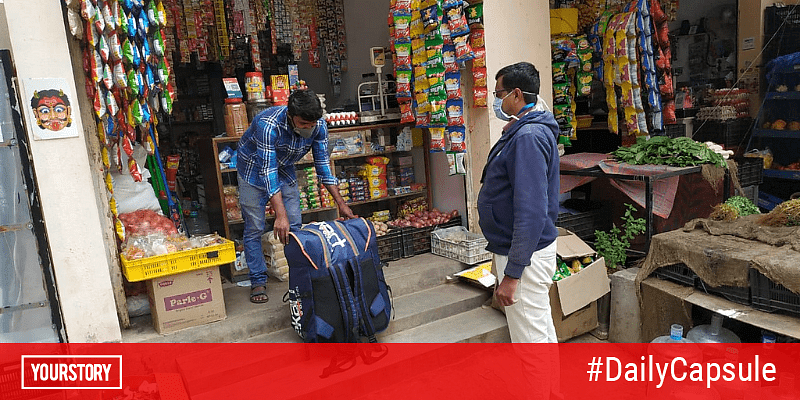Propelled by India’s push towards digitisation coupled with the COVID-19 pandemic that has accelerated this shift, an increasing number of kiranas are going digital.
And this has not just resulted in kiranas onboarding the payment apps, but has also led to a rise in their incomes.
Homegrown ecommerce marketplace Flipkart says that small retailers on its network, such as general stores, tailor shops, and more, registered a 30 percent rise in average monthly delivery incomes in 2020.
Last year, Flipkart-owned PhonePe said it would enable digital payments for over 25 million small merchants across India by offering them end-to-end control of the payment process.
With this rapid penetration of digital payments, kiranas are now going contactless. This doesn’t just enable kiranas to receive digital orders from consumers and make digital payments, but also digitises handling stock and the supply chain, fulfilments, and getting loans sanctioned.
According to projections, 12 million small retailers are taking the digital plunge due to giants like Paytm, PhonePe, Reliance, and Facebook.
This opens up various opportunities for startups such as Ahmedabad-based Easy Pay whose Paisa Nikal app connects both small stores and their consumers through banking services. With its Aadhar-enabled payment system and value-added services, the startup creates additional revenue for the kirana stores in the form of banking commission.
Read all about how the Indian startup ecosystem is battling the second wave of COVID-19 here.
Here are some useful tools to help you find the nearest vaccine centres in real-time.
You can also share a tribute to COVID-19 warriors, saviours, and survivors here.
The Interview
Myhealthcare is a digital healthcare ecosystem that uses technology to enhance the healthcare delivery network across both private and public healthcare sectors. The startup has 57 partner hospitals and 20 million patients being served over the platform.
Shyatto Raha, Founder and CEO, MyHealthcare talks about how the startup is enabling access to healthcare beyond the boundaries of hospitals with the help of technology.
Editor’s Pick: The Turning Point
When Ravjot Arora lost his grandfather in 2010, it was because the family could not get a proper emergency service on time. This eventually led him to start Medulance along with his friend Pranav Bajaj in 2017.
Medulance is an ambulance and paramedical services aggregator that was started to increase the reliability and access to ambulance services in India. The Delhi-based healthtech startup enables users to book an ambulance using the mobile app and the nearest available ambulance will be assigned to the user. Read more.
Startup Spotlight
Enhancing the buying experience of D2C brands using tech
With the growth of AI and chatbots, businesses and consumers are starting to prefer to interact through chat mediums because of a personalised store-like experience coupled with faster response times and round the clock customer support.
Aniket Bajpai and Nikhil Gupta launched AI-based chatbot LimeChat to help brands improve their website conversions by leveraging chat mediums like WhatsApp, Facebook Messenger, Instagram, etc. Read more.
Snapshot of Limechat
News & Updates
Before you go, stay inspired with…
Raghavendra Ravinutala, CEO, Yellow Messenger
“We are seeing a tectonic shift and message-based ordering is the norm. Small stores can benefit from this development.”
— Raghu Ravinutala, Co-founder and CEO, Yellow Messenger
Now get the Daily Capsule in your inbox. Subscribe to our newsletter today!










